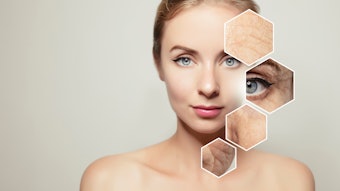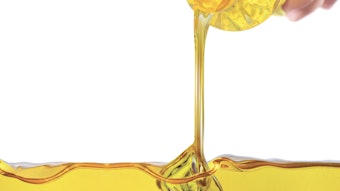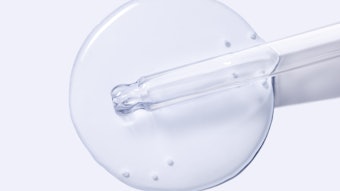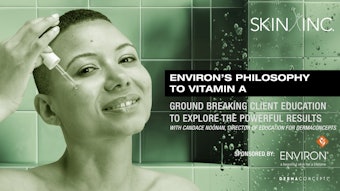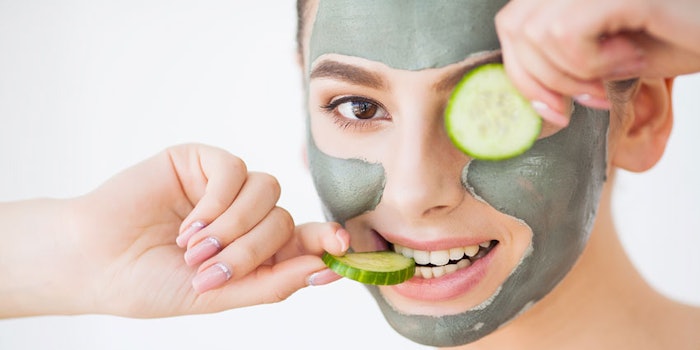
One of the oldest, time-honored traditions in the care of skin is masking, with the earliest recorded uses of masks dating back more than 5,000 years ago as an integral part of ancient Ayurvedic practice. Referred to as Ubtan, masks are a part of Ayurvedic tradition, with different masks applied to skin on both the face and body based on different seasons, containing mixtures of various herbs, plants and spices formulated to beautify and treat numerous skin ailments.
This same masking tradition was also connected to religious rituals and practices throughout ancient Ayurvedic culture. In addition to being used within Ayurveda, masks have a history of uses throughout ancient Egypt, China and Rome for similar purposes. Since the use of masks throughout ancient times, their modern counterparts have evolved substantially, both in their formulations and purpose in providing dramatic results in the skin.
Masks' Purpose In Modern Skin Care
While masks had religious, cultural and beautifying significance throughout ancient history, their role in modern times have evolved into being an essential step in our skin care regimen to achieve results for skin concerns.
Although this may be obvious to us as estheticians, to our customers, the purpose and importance of a mask can often be confusing or misunderstood. In the treatment room, we as estheticians perceive masks as a necessary treatment for conditions in the skin; however, to the customer, masks are often viewed as a luxury-only step in skin care, rather than essential or convenient for home use.
In contrast to this perception, masks are one of the most concentrated, active and results-driven steps in skin care, and they can also be convenient based on how they are used or applied. Masks are similar to personal trainers, but for skin, and our customers need to continue using it at home after receiving a facial to maintain lasting results.
An analogy to differentiate the various roles skin care plays is thinking of the categories including cleansers, toners and moisturizers as our daily maintenance, or the regular “diet” for our skin. Masks should be viewed as a supplement to our skin’s diet, or the “green super-smoothie” of skin care, having the highest concentrated actives and nutrients designed to resolve specific skin conditions through supplementation.
The Application Process
How masks are applied varies as much as their ingredients, ranging from a traditional application with the hands, to the recently trendy use of sheet masks. As a personal opinion, hand-applied masks tend to offer a more green-friendly option to customers without the need to waste a sheet of paper every time, and can be luxuriously massaged into the skin. These hand-applied masks also adhere better, without the need to re-press the sheet mask onto the skin due to it falling off repeatedly, so they can easily be slept in to continue the treatment of the skin overnight. These same masks can be utilized as an in-shower treatment to offer another form of convenience to the customer.
How often should you be using masks to achieve amazing results? There is no direct answer, as every type and brand on the market may contain different levels of acids, antioxidants and actives, which affect the skin adversely if applied too often.
A safe bet is to follow the product’s instructions for use, and contact the manufacturer if you have any additional questions about the maximum number of times per week the mask can safely be applied. A common question our customers consider is the minimum number of times to mask per week, as many are looking for the least time commitment possible. The recommendation is to mask at least two to three times a week to continually train and improve the skin with the actives contained in the mask.
Essential Modern Mask Actives
As masks and their purposes have evolved, so have their formulations and ability to rapidly resolve skin conditions including acne, rosacea, sun damage and even advanced signs of aging. These formulations often include traditional herbal and plant-based ingredients, combined with modern, science-based solutions. Marrying the best of both worlds is ideal for achieving maximum results and the most sensory-centric customer experience.
Here are some of the most essential and effective modern mask ingredients to look for:
Vitamin C. Be on the lookout for vitamin C masks which contain a combination of supportive vitamins and antioxidants. For example, when vitamin C is used in conjunction with vitamin E, it’s antioxidant and UV-protective capacities increase four-fold. When combined with ferulic acid, these same effects increase eight-fold.
Though it is a popular skin care ingredient, it’s important to remember not all forms of vitamin C are created equal, especially in terms of stability. L-Ascorbic Acid is the most commonly used type of vitamin C in skin care and is extremely active, providing incredible pigment lightening results in the skin. It is also arguably the most unstable form of vitamin C and can lose efficacy over time when exposed to water, oxygen and light. Ensuring other types of vitamin C are present in the formulation in addition to L-Ascorbic Acid is essential.
A more stable form of vitamin C is Sodium Ascorbyl Phosphate, which is a mineral form of vitamin C that stays active for longer and is less vulnerable to early oxidation. A quality, potent vitamin C mask with these ingredients can help increase firmness in skin, brighten sun damage and age spots and provide a radiant, youthful glow.
Vegan Hyaluronic Acid Alternatives. Traditional hyaluronic acid is a hugely popular ingredient for its plumping properties. Though effective, hyaluronic acid is often sourced from mammals, which presents a multitude of challenges including questions of sustainability, efficacy and raises potential animal cruelty concerns.
Since the discovery of hyaluronic acid and better understanding its properties, a wave of plant-sourced alternatives have come to market, which potentially provides better results in the skin for increased hydration, wrinkle filling and enhanced barrier function. Two of these novel ingredients include marshmallow root and snow mushroom. Both plants contain incredible polysaccharides (sugars) which function similarly to traditional hyaluronic acid by attracting and binding water into the skin.
The benefit of the plant-based alternative is some molecule sizes are much smaller, leading to deeper penetration and enhanced functionality. These same miraculous sugars also form a veil on the surface of the skin to effectively “trap” water in the skin, leading to all-day hydrating benefits.
Another superior aspect of these plant-based alternatives is the ability to inhibit the loss of hyaluronic acid naturally occurring in our skin, thanks to an enzyme called hyaluronidase. These hyaluronic acid alternatives are vital ingredients every age group should be using at least two to three times a week, as hyaluronic acid in our skin can start to break down from as early as 19 years old.
Encapsulated Salicylic Acid. Salicylic acid is an ingredient often used in the treatment of oily, acne-prone skin types due to the exfoliating, anti-inflammatory and oil-soluble properties. Although it can be helpful in the treatment of blemish-prone skin, the traditional form of this acid can cause peeling, irritation and increased sensitivity to the elements.
A recent development in the evolution of this ingredient is the encapsulated delivery system, which time releases the salicylic acid and side-steps some of the previously mentioned challenges. Time releasing salicylic acid protects against irritation and sensitivity in the skin, and it provides more exceptional adhesion allowing the salicylic acid to stay active for longer in the skin. Through more significant adhesion, the salicylic acid gently exfoliates, lowers inflammation and clears the follicle of blockages throughout the entire day.
Plant-Based Stem Cells. Managing the loss of elasticity and suppleness in the skin becomes more challenging with age, and while there are many active ingredients on the market for stimulating more collagen and elastin, many of the popular ones are either chemically derived or mammalian sourced. Nature offers alternative plant-based stem cell technology to stimulate the fibroblasts responsible for new collagen and elastin production in the skin.
Argan stem cells are an example of an ingredient which can recharge lost energy and factors in human stem cells to create fibroblast proliferation in the deepest layer of the skin, the dermis. These actives are delivered in a liposome or lipid sphere, allowing them to travel to the base of the hair follicle and charge up the stems cells located in the papilla. Later in their life cycle, these charged-up stem cells migrate from the papilla into the dermis and differentiate or change into more fibroblasts, resulting in dense concentration of collagen and elastin in the dermis, filling in wrinkles and lifting the skin in the key areas including the nasal labial folds, jowls and neckline.
Mask Maintenance
Masks have evolved over 5,000 years, from being a ceremonial beauty and religious practice, to also being a science-based, results-oriented treatment essential to our skin care. Masks are a crucial skin care step; we should ensure all of our customers are utilizing masks in their home care regimen, not just when they receive a facial
Masks are the most potent treatment our customers can utilize in their skin care routine, functioning as a super-concentrated smoothie for the skin jam-packed with useful nutrients, actives and vitamins. They can be used conveniently as either an in-shower super treatment or applied as a creamy, ultra-rich overnight treatment to target various skin concerns, and your clients should be using them at least two to three times a week if they wish to see a change in their skin. Search for the specific ingredients and actives mentioned throughout this article to ensure you are utilizing the most revolutionary, results-driven masks on the market.



